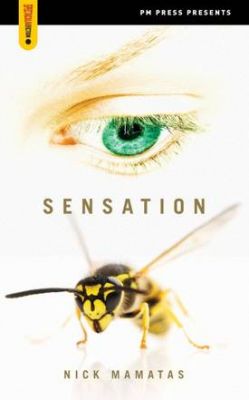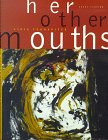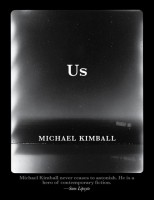Lily Hoang
https://literature.ucsd.edu/people/faculty/lhoang.html
Lily Hoang has published some books and won some awards. She is Director of the MFA in Writing at UC San Diego.
https://literature.ucsd.edu/people/faculty/lhoang.html
Lily Hoang has published some books and won some awards. She is Director of the MFA in Writing at UC San Diego.
A few years ago, I had a student walk into my Intro to Women’s Studies class – late – on the very first day. She was a non-traditional student, probably older than me by ten years. As is expected for first day “ice breakers,” I asked my students why they were taking my class, what they thought feminism means, etc. This student offered to start the conversation. She asked: My religion tells me that I should submit to my husband, and I believe my religion. Can I still be a feminist?
I’d never been asked a question like that before, and it was jarring, sure, but I knew the answer: Yes, of course you can!
This is perhaps an odd way to begin a post about the “authenticity” of being a writer, and yet, it isn’t. A few weeks ago, someone commented that Starcherone wasn’t a “legit” publisher. A couple weeks ago, the BlazeVOX scandal hijacked the writer blogworld. The issue of legitimacy came up again and again. Last week, an anonymous blogger made the argument that I participate in some type of elite cronyism because I said I don’t like to submit to journals. All of these events circle around the question of legitimacy and authenticity. And I wonder: what the fuck does it really matter?
A while back, I posted a link to Les Figues Press’s very first book contest. Whereas all I did was post the submission information, many commenters responded, asking questions and giving opinions about contests in general. To clear up any questions about motivation, profit margins, etc, I have assembled four small presses – Les Figues Press, Starcherone Books, Noemi Press, and Fiction Collective 2 – to discuss their contests. I hope you find this conversation as illuminating as I do.
Bios for the presses can be found after the conversation. The publishers representing the presses are as follows:
Les Figues Press (LFP) – Teresa Carmody
Starcherone Books – Ted Pelton
Noemi Press – Carmen Gimenez Smith
Fiction Collective 2 (FC2) – Lance Olsen
Note: You may notice an exclusion in the conversation here, that is, I didn’t ask anyone to represent a press who doesn’t have a contest. I had considered asking a few people, but ultimately, I wanted to focus on why presses have chosen to run a contest. Expect a post within the next few weeks with presses who have chosen not to run a contest, for whatever reason. Hey publishers: if you have a press that doesn’t run a contest and want to participate in a conversation like this one, email me: Lily [dot] Hoang [dot] 326 [at] gmail [dot] com.
LH: How long has your press run a contest, and what was your rationale in starting it? Do you require a submission fee? With the submission fee, does the applicant get any other goodies?
I’ve been thinking about God lately. Or, I’ve been thinking about how God is used and abused in speeches, especially of the political nature. The other day, as I was finishing up Season 2 of Battlestar Galactica, I saw Michele Bachmann’s Iowa straw poll victory speech. Think what you will of Bachmann, in her excitement and adrenaline, she demanded, “God bless America!” and “God bless you!” at least a dozen times within a few minutes. I use the word “demanded” purposefully. Somewhere along the way, we as an English-speaking people went from asking or requesting that God bless us – “May God bless you” – to commanding this omnipotent, omniscient powerhouse to bless us. Whereas the omission of “May” may be a simple elision, that is, it was just more convenient for us to drop the “may” in order to be more efficient with our time. One syllable can make a difference.
Does anyone write disses like this anymore?
The literary convention of the time is so artificial… that, naturally, the feeble are tempted to outrage, and the strong are led to destroy the very foundations and rules of literary society. Signs of this are everywhere apparent. Grammar is violated; syntax disintegrated; as a boy staying with an aunt for the week-end rolls in the geranium bed out of sheer desperation as the solemnities of the sabbath wear on. The more adult writer do not, of course, indulge in such wanton exhibitions of spleen. Their sincerity is desperate, and their courage tremendous; it is only that they do not know which to use, a fork or their fingers. Thus, if you read Mr. Joyce and Mr. Eliot you will be struck by the indecency of the one, and the obscurity of the other. Mr. Joyce’s indecency in Ulysses seems to me the conscious and calculated indecency of a desperate man who feels that in order to breathe he must break the windows. At moments, when the window is broken, he is magnificent. But what a waste of energy! And, after all, how dull indecency is, when it is not the overflowing of a superabundant energy or savagery, but the determined and public-spirited act of a man who needs fresh air! Again, with the obscurity of Mr. Eliot. I think that Mr. Eliot has written some of the loveliest single lines in modern poetry. But how intolerant he is of the old usages and politeness of society – respect for the weak, consideration for the dull! As I sun myself upon the intense and ravishing beauty of one of his lines, and reflect that I must make a dizzy and dangerous leap to the next, and so on from line to line, like an acrobat flying precariously from bar to bar, I cry out, I confess, for the old decorums, and envy the indolence of my ancestors who, instead of spinning madly through mid-air, dreamt quietly in the shade with a book. -Virginia Woolf, “Mr. Bennett and Mrs. Brown”
Carmen Gimenez Smith’s book BRING DOWN LITTLE BIRDS has just won an American Book Award. Huge huge huge congrats to her. And, she got the news while sitting in my house.
Dear Evan Lavender-Smith,
I have read your two books. I have read and loved your two books. I couldn’t tell they were bred from the same body – yours – and your breadth alone amazes. Your breadth is the least of my compliments. From Old Notebooks: bursts of brilliance, ideas merely generated, without bodies with which to attach, organs without bodies. Avatar: a requiem, lodged between mourning and jubilance. The sadness I encountered with every string of words, I can’t describe it. The loneliness. Avatar felt like a return home, like you somehow understood me, like the book was composed for me alone, but it wasn’t.


A webbed suspension. A stinging. A stunning. It’s stunning. I’m stunned and stung. It’s possible I’ve been infected.
Nick Mamatas’s Sensation is stunning. It’s sensational.
Ok, imagine a world with men of indeterminate ethnicity. Easy enough, right? Now, imagine these men are not made of flesh – like you and I are – but are mere veneers, flexible shells. Inside, thousands of spiders. Inside, these intelligent, mutant spiders control men. They are out to control the world. Or, to help the world. Or, at least, to prevent the wasps from taking over. No, not WASPs, but literally, wasps. From South America.
Dear Lidia Yuknavitch,
It’s your birthday, and I am grateful you exist.
Even if it wasn’t your birthday, I’d be grateful.
 Lidia, the first book of yours I read was in 2004, Her Other Mouths. I read it for a class with Steve Tomasula. I read it and thought: fuck, writing really can do this. Mind you: I’d read Kathy Acker. I’d read James Joyce. I’d read Raymond Federman. I’d read Samuel Beckett and Virginia Woolf and Gertrude Stein and David Foster Wallace and Anne Carson. I’d read a whole bunch of people, but it was your book that told me that I could write what I wanted to write, how I wanted to write it. Your book was brazen and unapologetic. Most of the other books I was reading were cowering and pretty, like princesses rather than heroines.
Lidia, the first book of yours I read was in 2004, Her Other Mouths. I read it for a class with Steve Tomasula. I read it and thought: fuck, writing really can do this. Mind you: I’d read Kathy Acker. I’d read James Joyce. I’d read Raymond Federman. I’d read Samuel Beckett and Virginia Woolf and Gertrude Stein and David Foster Wallace and Anne Carson. I’d read a whole bunch of people, but it was your book that told me that I could write what I wanted to write, how I wanted to write it. Your book was brazen and unapologetic. Most of the other books I was reading were cowering and pretty, like princesses rather than heroines.
Your book was a heroine.
 Les Figues Press is having a contest. Find out more about here. 1k + publication. All entrants get a free TrenchArt book of their choice. And there are many good choices.
Les Figues Press is having a contest. Find out more about here. 1k + publication. All entrants get a free TrenchArt book of their choice. And there are many good choices.
Dear Michael Kimball,
In perhaps a not entirely sober state, I started your book Us on Saturday night. It was midnight, plus or minus some time. I had many other books to read, but I started your book, and after I read the first paragraph, I wanted to read the whole thing, that night, but I fell asleep on page fifty, plus or minus some pages, and all night while I slept, I was angry at myself for falling asleep.
Michael Kimball, I started your book from the very beginning yesterday because I was perhaps not fully sober when I started the night before. I woke up unnecessarily early yesterday morning, despite having had a raucous night previously, not to mention the disturbed slumber, at 6:30. I propelled myself out of bed and picked up your book immediately. I read your book while I prepared my coffee.
Rather than check my email, I read your book.
I read your book while I walked to the café.